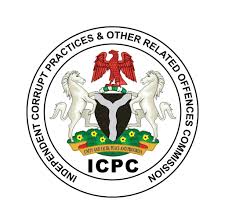The Independent Corrupt Practices and Other Related Offences Commission (ICPC) has successfully prevented the diversion of ₦189 billion in unspent personnel costs across various federal government ministries, departments, and agencies (MDAs) between 2019 and 2020.
This figure, equivalent to 8.25% of the ₦2.29 trillion budgeted for personnel costs in 2019, was uncovered through the monitoring of the Open Treasury Portal, as highlighted in a report by Agora Policy.
The Open Treasury Portal, inaugurated in December 2019 under the administration of former President Muhammadu Buhari, was designed to enhance transparency in government spending. It mandates MDAs to publish daily financial summaries exceeding ₦5 million and provide monthly updates on budget performance and economic activities.
The Agora Policy report revealed that the blocked funds stemmed from budget manipulation, where MDAs received allocations far exceeding their actual needs. This malpractice has contributed to the steady rise in personnel costs, which increased from ₦1.6 trillion in 2016 to ₦2.90 trillion in 2017, despite no significant wage adjustments or emolument reviews.
However, the report also highlighted significant challenges with the Open Treasury Portal’s implementation. Many MDAs fail to regularly update the required financial records, citing issues such as non-compliance by officials, technical limitations, and sabotage.
The report shed light on Nigeria’s ongoing struggle with corruption, referencing past studies:
1. A 2019 National Bureau of Statistics (NBS) report revealed that bribe-payers spend up to 6% of their annual income on average.
2. A 2009 African Peer Review Mechanism (APRM) report described corruption as Nigeria’s most significant obstacle to development.
3. A 2016 PricewaterhouseCoopers study projected that unchecked corruption could cost Nigeria 37% of its GDP by 2030.
While the ICPC’s efforts are commendable, the Agora Policy report underline the need for stronger enforcement of transparency measures and greater accountability across government institutions. Addressing these challenges remains crucial for curbing corruption and ensuring sustainable development in Nigeria.
[With additional information from Thisday]





























